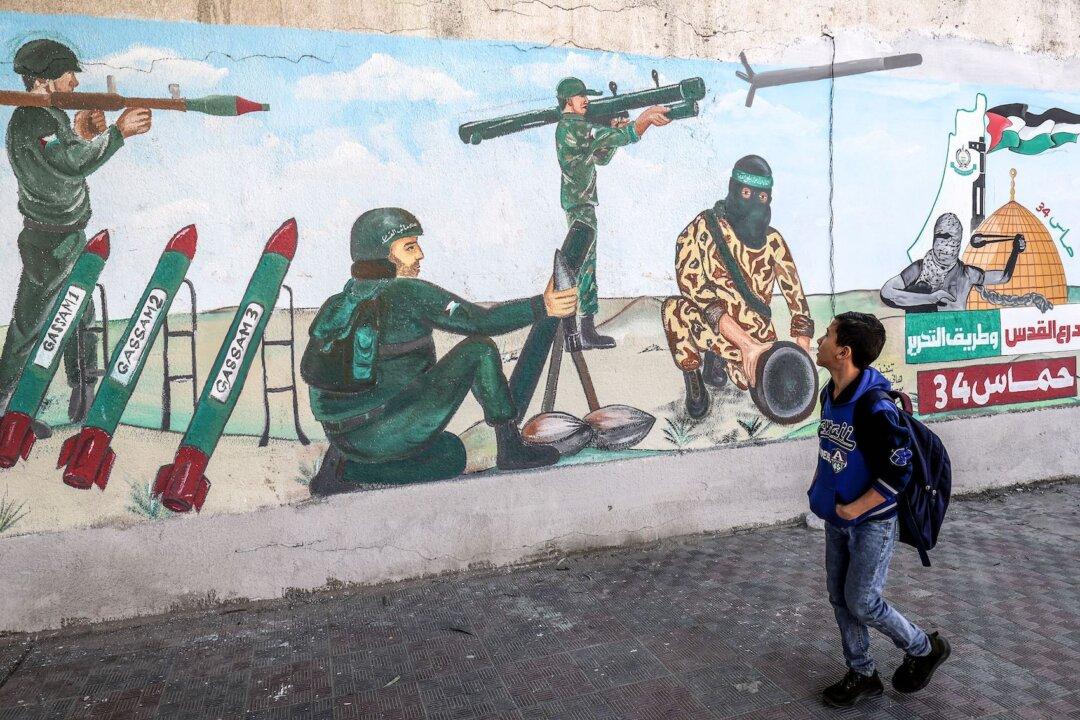Commentary
Some of the most beautiful, exotic textiles in the world are crafted by Arabs based on the artistic genius of ancient designs. The Englishman returning home from the Empire’s Middle Eastern colonies balancing the heathen booty of a rolled-up carpet on his shoulder is a visual cliché; T.E. Lawrence even boasted that, in the course of a raid during the Arab Revolt in 1917, he had secured for himself “a superfine red Baluch prayer-rug.”





